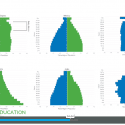
Students construct and interpret population pyramids for six different countries in this lesson. By analyzing age and...
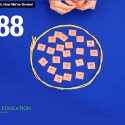
This engaging population growth simulation helps students experience the changing pace of Earth’s population growth over the...
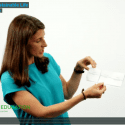
Students identify the ten most important factors for a sustainable community and create measurable indicators to evaluate...
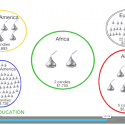
In this engaging global studies activity, students role-play as residents of five major world regions to compare...

This impactful classroom activity uses a simple apple-cutting demonstration to visually represent the small portion of Earth’s...
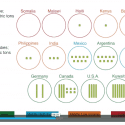
In this engaging climate change lesson, students collaborate in small groups to explore key environmental issues throughout...

Urbanization background reading: Our world population is rapidly urbanizing. Yet, urban and suburban sprawl in more developed...

Urbanization case study reading: A profile of the growth of Shenzhen, China.
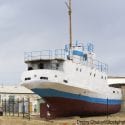
Water resources case study reading: A profile of Asia’s Aral Sea, the reasons it is disappearing and...
PopEd Impact
campuses
"The activities not only bring out important content, but they also provide real-world context for environmental, population and sustainability issues. They engage participants in very thought-provoking and critical-thinking discussions.”
Helen de la Maza, Environmental Educator, Irvine, CA

